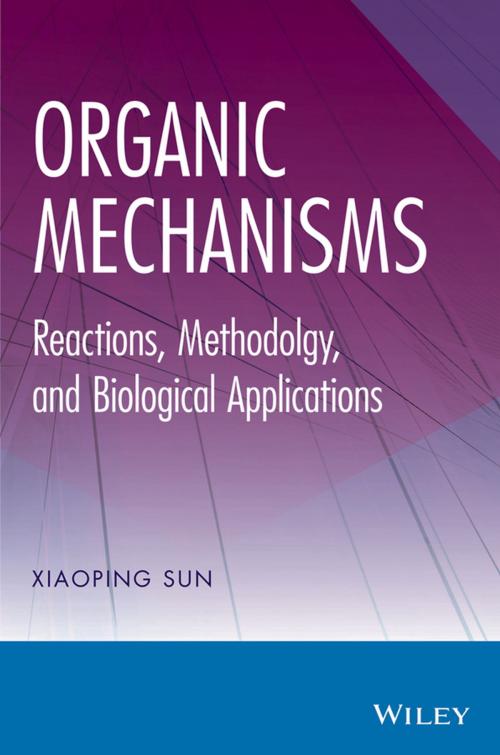Organic Mechanisms
Reactions, Methodology, and Biological Applications
Nonfiction, Science & Nature, Science, Chemistry, Physical & Theoretical, Organic, General Chemistry| Author: | Xiaoping Sun | ISBN: | 9781118507919 |
| Publisher: | Wiley | Publication: | June 5, 2013 |
| Imprint: | Wiley | Language: | English |
| Author: | Xiaoping Sun |
| ISBN: | 9781118507919 |
| Publisher: | Wiley |
| Publication: | June 5, 2013 |
| Imprint: | Wiley |
| Language: | English |
Instills a deeper understanding of how and why organic reactions happen
Integrating reaction mechanisms, synthetic methodology, and biological applications, Organic Mechanisms gives organic chemists the tools needed to perform seamless organic reactions. By explaining the underlying mechanisms of organic reactions, author Xiaoping Sun makes it possible for readers to gain a deeper understanding of not only chemical phenomena, but also the ability to develop new synthetic methods. Moreover, by emphasizing biological applications, this book enables readers to master both advanced organic chemistry theory and practice.
Organic Mechanisms consists of ten chapters, beginning with a review of fundamental physicochemical principles that are essential for understanding the nature of organic mechanisms. Each one of the remaining chapters is devoted to a major class of organic reactions, including:
- Aliphatic C–H bond functionalization
- Functionalization of the alkene C=C bond by cycloaddition reactions
- Nucleophilic substitutions on sp3-hybridized carbons
- Nucleophilic additions and substitutions on carbonyl groups
- Reactivity of the α-hydrogen to carbonyl groups
- Rearrangements
A brief review of basic organic chemistry begins each chapter, helping readers move from fundamental concepts to an advanced understanding of reaction mechanisms. Key mechanisms are illustrated by expertly drawn figures highlighting microscopic details. End-of-chapter problems enable readers to put their newfound knowledge into practice by solving key problems in organic reactions with the use of mechanistic studies, and a Solutions Manual is available online for course instructors.
Thoroughly referenced and current with recent findings in organic reaction mechanisms, Organic Mechanisms is recommended for upper-level undergraduates and graduate students in advanced organic chemistry, as well as for practicing chemists who want to further explore the mechanistic aspects of organic reactions.
Instills a deeper understanding of how and why organic reactions happen
Integrating reaction mechanisms, synthetic methodology, and biological applications, Organic Mechanisms gives organic chemists the tools needed to perform seamless organic reactions. By explaining the underlying mechanisms of organic reactions, author Xiaoping Sun makes it possible for readers to gain a deeper understanding of not only chemical phenomena, but also the ability to develop new synthetic methods. Moreover, by emphasizing biological applications, this book enables readers to master both advanced organic chemistry theory and practice.
Organic Mechanisms consists of ten chapters, beginning with a review of fundamental physicochemical principles that are essential for understanding the nature of organic mechanisms. Each one of the remaining chapters is devoted to a major class of organic reactions, including:
- Aliphatic C–H bond functionalization
- Functionalization of the alkene C=C bond by cycloaddition reactions
- Nucleophilic substitutions on sp3-hybridized carbons
- Nucleophilic additions and substitutions on carbonyl groups
- Reactivity of the α-hydrogen to carbonyl groups
- Rearrangements
A brief review of basic organic chemistry begins each chapter, helping readers move from fundamental concepts to an advanced understanding of reaction mechanisms. Key mechanisms are illustrated by expertly drawn figures highlighting microscopic details. End-of-chapter problems enable readers to put their newfound knowledge into practice by solving key problems in organic reactions with the use of mechanistic studies, and a Solutions Manual is available online for course instructors.
Thoroughly referenced and current with recent findings in organic reaction mechanisms, Organic Mechanisms is recommended for upper-level undergraduates and graduate students in advanced organic chemistry, as well as for practicing chemists who want to further explore the mechanistic aspects of organic reactions.















